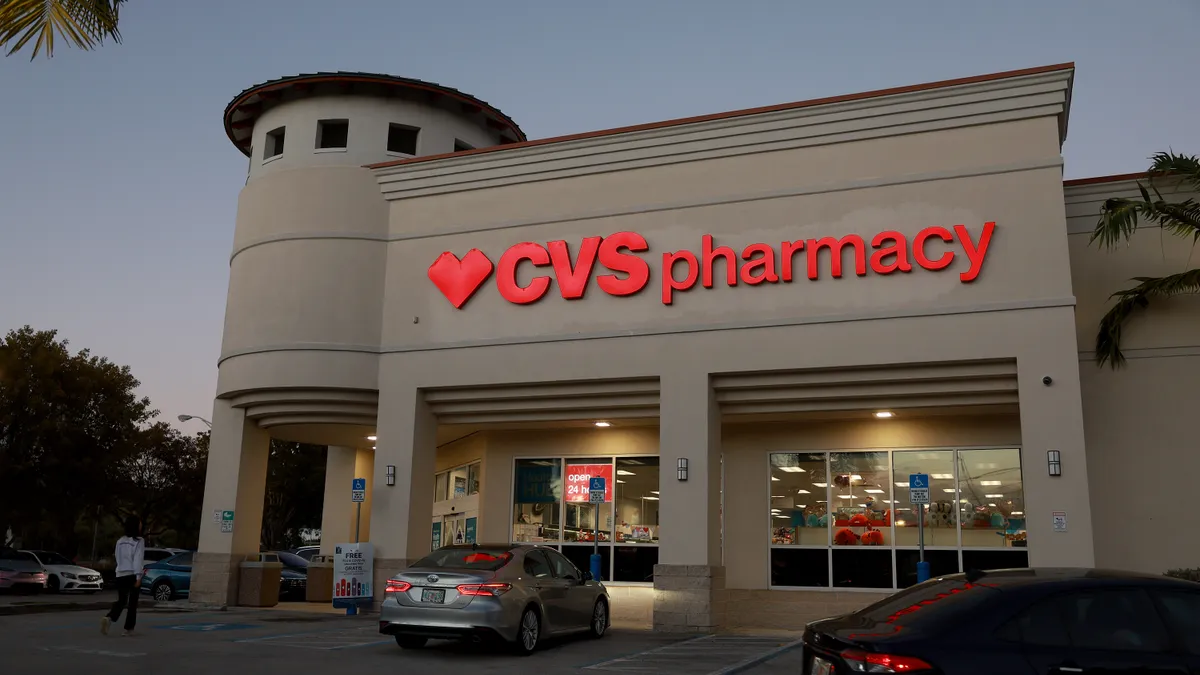Dive Brief:
- The Justice Department accused CVS Pharmacy of filling opioid prescriptions that triggered “red flags” for overworked employees who were pushed to turn out prescriptions for higher corporate profits. The U.S. lawsuit says parent CVS Health helped to fuel the country’s opioid epidemic by violating the Controlled Substances Act and the False Claims Act for at least the past decade.
- The complaint was filed Dec. 13 in U.S. District Court in Rhode Island, where CVS is based, and was unsealed on Wednesday. The company “knew that its staffing policies and compensation and performance metrics emphasized speed over safety,” the government alleged, resulting in people obtaining opioids fraudulently.
- CVS will defend itself vigorously against the “misguided” lawsuit, the company said in a statement. “We have cooperated with the DOJ’s investigation for more than four years, and we strongly disagree with the allegations and false narrative within this complaint.”
Dive Insight:
The Justice Department is intervening and assuming a whistleblower complaint brought by a former CVS pharmacist, Hillary Estright, who filed a qui tam writ under the False Claims Act in October 2019. The suit also names CVS Pharmacy subsidiaries nationwide as co-defendants.
The government said that CVS — the largest U.S. pharmacy chain, with around 9,000 stores — “knew that its pharmacists lacked the time to comply with their professional practice obligations, including their exercise of corresponding responsibility.”
CVS’s staffing policies, compensation and performance metrics “emphasized speed over safety,” which caused pharmacists to “knowingly dispense controlled substances pursuant to invalid and dangerous prescriptions,” according to the complaint.
CVS violated the False Claims Act since 2013 by filling what its pharmacists often knew were bogus opioid prescriptions under the U.S.-funded Medicare, Medicaid and TRICARE programs, according to the lawsuit. The latter program covers military service members and their families.
In November 2022, CVS Health agreed to pay $5 billion over 10 years to settle lawsuits brought by states, cities and tribes related to its dispensing of opioid prescriptions.
The lawsuit says CVS did not require pharmacists to complete a due diligence checklist for certain opioids after the company determined that the list would cost $11 million in additional labor costs.
The Justice Department “seeks to impose a shifting standard for pharmacy practice,” CVS said in its response to the suit.
“Many of the litigation theories laid out in the complaint are not found in any statute or regulation, and relate to topics on which the government has declined to provide guidance,” the company said. “Each of the prescriptions in question was for an FDA-approved opioid medication prescribed by a practitioner who the government itself licensed, authorized, and empowered to write controlled-substance prescriptions.”
Some of the DOJ’s claims echo allegations in a federal lawsuit San Francisco filed in 2018 against multiple defendants related to opioids. Walgreens was the last remaining defendant who chose not to settle before trial in 2022.
In August 2022, a federal judge found Walgreens liable for dispensing opioids without proper diligence and for creating a public nuisance in the city. The company’s staffing policies left San Francisco Walgreens pharmacists unable to properly investigate hundreds of thousands of prescriptions that set off red flag warning signs, Judge Charles Breyer ruled.
“Pharmacies have a corresponding duty to exercise independent judgment in determining whether the prescription was written for a legitimate medical purpose,” Breyer wrote.











